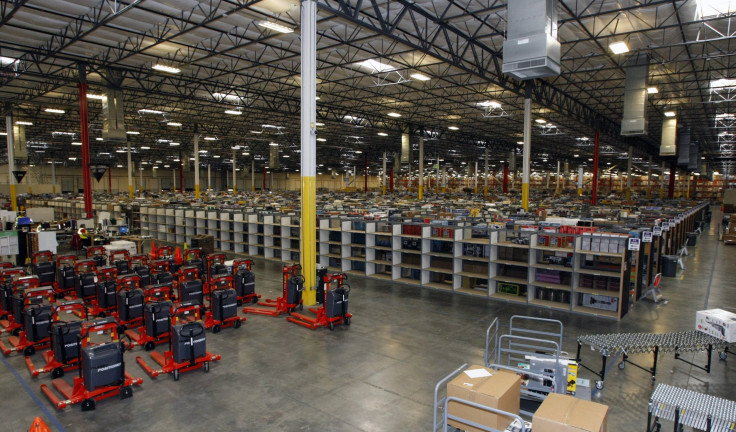Marketplace Fairness Act 2013: How The Internet Sales Tax Bill Will Affect Online Shopping In Different States

The Senate on Monday is likely to pass an Internet sales tax bill that would end tax-free online shopping and require online retailers to collect sales tax on products sold in states other than the ones in which they have a presence.
The Marketplace Fairness Act, which was introduced by Sen. Mike Enzi, R-Wy., aims to tax out-of-state online retailers who bipartisan supporters say have an unfair advantage over brick-and-mortar stores, since they're not required to collect the sales tax owed on the products they sell, even if the state requests it. Supporters say the bill would enable states to collect sales taxes that already are owed, not create a new tax or raise tax rates.
But as Washington works to pass this controversial bill, the question remains how the Marketplace Fairness Act will affect online consumers directly. The answer to that question depends on where the consumer lives.
While big brick-and-mortar retailers with an online presence, such as Wal-Mart (NYSE: WMT), already charge sales tax for Web purchases, in many states, you can still shop tax-free at Internet-only retailers like Amazon.com (Nasdaq: AMZN) or Overstock.com (Nasdaq: OSTK).
Currently, these online sellers are only required to collect tax in states where they have a physical presence, such as a storefront or warehouse. But under the proposed law, states would be able to require online sellers to collect sales tax if they have sales of at least $1 million in states where they don't have operations.
One major argument from those in support of the Marketplace Fairness Act is that it would not impose any new tax, as in most states you're already supposed to be paying taxes on all online purchases.
Most states require you to pay a so-called "use tax" when a sales tax wasn't collected at online checkout. However, few people actually do so.
But even if the law passes, online consumers still might end up in the clear.
In recent years, some states have passed laws forcing major online retailers to collect sales tax, while others have made exclusive deals directly with Amazon.com to collect taxes on purchases made by residents of certain states.
Consumers in Arizona, California, Kansas, Kentucky, New York, North Dakota, Pennsylvania, Texas and Washington -- states where Amazon has a presence -- are already paying taxes on Amazon purchases. In other states, the law would require any online retailer with a so-called in-state "affiliate," such as marketers who link to the retailer's site, to collect taxes on purchases.
If you're a resident of a state that doesn't charge any sales tax, like Montana or New Hampshire, then your online shopping bills would also stay the same.
However, in many states, consumers may end up seeing a significant increase in what they’re used to paying. How much of an increase depends on the rates set by state and local governments. For example, a $1,000 television sent to New Jersey could carry a $70 tax, while a resident of Maine might pay $50 in sales tax on the same purchase.
A recent national poll from Quinnipiac University shows that 56 percent of voters said they think items and services purchased on the Internet should not be subject to state sales taxes, while just 37 percent said they should be.
© Copyright IBTimes 2024. All rights reserved.






















